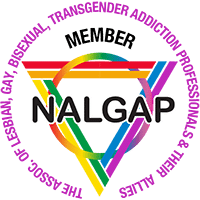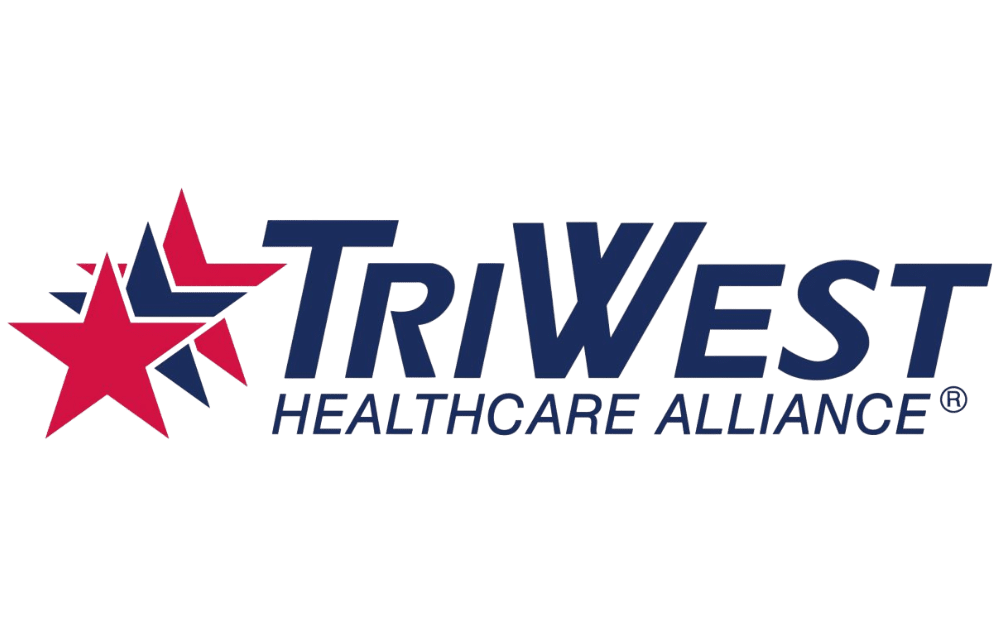Dual diagnosis treatment centers
What Are Dual Diagnosis Treatment Centers?
Dual diagnosis treatment centers are specialized facilities designed to address both mental health disorders and substance use disorders simultaneously. These centers take a comprehensive approach, recognizing that treating one condition without addressing the other can lead to incomplete recovery. At Mile High Recovery Center, we understand that the complexity of co-occurring disorders requires integrated care plans tailored to the individual needs of each client.
Patients with dual diagnoses often face unique challenges that necessitate a holistic approach to treatment. Dual diagnosis treatment centers like ours offer interdisciplinary teams that include psychiatrists, therapists, and addiction specialists who work collaboratively to develop personalized treatment plans. This comprehensive approach ensures that both mental health issues and substance use disorders are effectively managed to promote long-term recovery.
Types of Therapies Offered
At Mile High Recovery Center, we incorporate a range of evidence-based therapies to treat dual diagnosis patients. We believe in the power of both traditional and experiential therapies to build resilience and foster healing. Our therapeutic offerings include Cognitive Behavioral Therapy (CBT), which helps patients modify negative thought patterns, and Dialectical Behavior Therapy (DBT), which focuses on emotional regulation and interpersonal skills.
We also provide Eye Movement Desensitization and Reprocessing (EMDR) therapy for trauma-related conditions and Motivational Enhancement Therapy (MET) to encourage positive behavioral change. These therapies are complemented by experiential modalities such as adventure therapy and equine-assisted therapy, which promote self-discovery and growth in non-traditional settings.
Integrating a variety of therapeutic approaches allows us to address the unique aspects of each patient’s dual diagnosis. This multifaceted strategy is designed to empower our clients, giving them the tools they need to lead fulfilling lives in recovery.
Importance of Housing in Treatment
Supportive housing is a cornerstone of the treatment offered at Mile High Recovery Center. Our integrated housing-to-treatment pipeline provides clients with stable, drug-free environments where they can receive care and support around the clock. This continuity is vital for individuals dealing with dual diagnoses, as a stable living situation can significantly enhance treatment outcomes.
Our housing is designed to foster a sense of community, reducing the isolation often felt by those with co-occurring disorders. By offering nine sober living homes, we ensure that clients have access to safe and supportive environments as they transition back to everyday life. This focus on housing is essential in helping clients maintain their recovery long after formal treatment has ended.
Role of Medication-Assisted Treatment
Medication-Assisted Treatment (MAT) is an integral part of our program at Mile High Recovery Center, particularly for those managing opioid and alcohol use disorders. MAT involves the use of FDA-approved medications such as Suboxone and Vivitrol, which reduce cravings and withdrawal symptoms, making it easier for patients to remain in treatment and focus on recovery.
Combining MAT with behavioral therapies increases the chances of sustained recovery by addressing both the physiological and psychological aspects of addiction. Our experienced team carefully monitors medication protocols and works with patients to adjust treatment plans as needed, ensuring personalized care that aligns with each individual’s recovery goals.
Aftercare and Alumni Support
Mile High Recovery Center recognizes the importance of continued support after formal treatment concludes. Our robust aftercare and alumni program is designed to keep former clients connected to the recovery community, providing ongoing support and motivation. This program includes regular meetings, events, and activities that reinforce the skills and strategies learned during treatment.
We believe that staying engaged with a recovery community is vital for maintaining long-term sobriety. Our alumni network serves as a powerful resource, offering peer support and opportunities to give back by mentoring new clients. This ongoing connection helps individuals navigate the challenges of reintegration into everyday life while maintaining their commitment to recovery.
Addressing Stigma and Creating Acceptance
One of the challenges faced by those seeking help at dual diagnosis treatment centers is the stigma surrounding mental health and substance use disorders. At Mile High Recovery Center, we strive to create a culture of acceptance and understanding by educating clients, families, and the broader community about the nature of these complex conditions.
By fostering an environment of empathy and support, we help clients feel more comfortable seeking the help they need. Our efforts to destigmatize mental health and addiction are ongoing, with community outreach programs and educational initiatives that aim to change perceptions and promote compassionate care.
Creating a safe and non-judgmental space is essential for effective treatment, as it empowers individuals to share openly and work towards recovery without fear of discrimination.
Personal Experiences and Success Stories
The journey to recovery is deeply personal, and at Mile High Recovery Center, we celebrate every step our clients take towards healing. We have witnessed countless success stories where individuals have overcome the challenges of dual diagnosis to rebuild their lives and achieve lasting sobriety. These narratives reflect the resilience and determination of our clients, as well as the effectiveness of our comprehensive treatment approach.
Our team, many of whom have personal experience with recovery, serve as living proof that change is possible. Their insights and empathy add a valuable layer of understanding and motivation for clients, offering hope and inspiration throughout the recovery process.
By sharing these stories, we aim to inspire others who are struggling with similar challenges to seek the help they need and embark on their own journey of healing and transformation.
Integrating Research and Innovation
At Mile High Recovery Center, we are committed to integrating the latest research and innovative practices into our treatment programs. We constantly evaluate new therapies and approaches, ensuring that our clients receive the most effective care possible. This dedication to continuous improvement allows us to provide cutting-edge treatment that aligns with evolving industry standards.
Our focus on research-driven care is complemented by collaborations with local healthcare providers and insurers, which help streamline transitions of care and enhance treatment outcomes. By staying at the forefront of recovery science, we empower our clients to benefit from the latest advancements in dual diagnosis treatment.
What Are Dual Diagnosis Treatment Centers?
Dual diagnosis treatment centers are specialized facilities designed to treat individuals who are facing both mental health disorders and substance use disorders simultaneously. These centers provide integrated care because addressing one condition without the other often leads to incomplete recovery. At Mile High Recovery Center, we understand the intricacies of co-occurring disorders and tailor comprehensive care plans to each individual’s needs. Our interdisciplinary teams, which include psychiatrists, therapists, and addiction specialists, collaborate to create personalized treatment strategies. This approach ensures that both mental health and substance use issues are managed effectively, promoting a long-term recovery. If you find yourself or a loved one dealing with such challenges, what specific benefits do you think a personalized approach might provide?
What Types of Therapies Are Offered at Dual Diagnosis Treatment Centers?
Mile High Recovery Center offers a myriad of therapies aimed at holistic healing for those with dual diagnoses. Our offerings include evidence-based therapies such as Cognitive Behavioral Therapy (CBT), which addresses negative thought patterns, and Dialectical Behavior Therapy (DBT), focusing on emotional regulation and interpersonal skills. Additionally, we incorporate Eye Movement Desensitization and Reprocessing (EMDR) for trauma, and Motivational Enhancement Therapy (MET) for encouraging change. Beyond traditional therapies, we offer experiential approaches like adventure and equine-assisted therapy to foster healing in non-traditional settings. These diverse interventions empower clients to overcome their challenges effectively. Have you experienced or heard about the impact of combining traditional and experiential therapies?
Why Is Housing Important in Dual Diagnosis Treatment?
Stable housing is pivotal in dual diagnosis treatment because it provides a secure and supportive environment that enhances treatment outcomes. At Mile High Recovery Center, we offer integrated housing-to-treatment solutions, ensuring a stable, drug-free living space across our nine sober living homes. Such environments foster a sense of community, reducing feelings of isolation that often accompany co-occurring disorders. By maintaining consistency in housing, clients can better transition back to everyday life while sustaining their recovery. How do you think a stable living situation could impact someone’s recovery journey?
What Role Does Medication-Assisted Treatment Play in Dual Diagnosis Programs?
Medication-Assisted Treatment (MAT) plays a critical role in managing dual diagnosis, especially for individuals with opioid and alcohol use disorders. At Mile High Recovery Center, we use FDA-approved medications like Suboxone and Vivitrol to alleviate cravings and withdrawal symptoms, thereby allowing clients to focus on recovery. By combining MAT with behavioral therapies, we address both the physiological and psychological facets of addiction, increasing the likelihood of sustained recovery. Our team monitors and adjusts medication protocols to align with clients’ recovery goals, ensuring personalized care. Have you considered how the integration of MAT with behavioral therapy might enhance treatment efficacy?
How Vital Are Aftercare and Alumni Support in Maintaining Recovery?
Aftercare and alumni support are crucial for long-term sobriety, as they provide continued connection and motivation post-treatment. At Mile High Recovery Center, we offer a comprehensive aftercare and alumni program that includes regular meetings and events to reinforce skills learned during treatment. Our alumni network serves as a resource for peer support and mentoring, helping individuals navigate post-treatment challenges. This ongoing engagement is vital for maintaining recovery. Have you thought about how staying connected to a support network might aid in ongoing recovery?
How Does Addressing Stigma Foster Acceptance in Dual Diagnosis Treatment?
Addressing stigma is essential for creating an environment where individuals feel safe seeking help. At Mile High Recovery Center, we strive to cultivate a culture of acceptance and understanding around mental health and substance use disorders. By educating clients, families, and the community, we aim to reduce stigma and encourage open dialogue, making it easier for individuals to pursue treatment without fear of judgment. This safe, non-judgmental space empowers individuals to share openly and work towards recovery. What are your thoughts on the impact of stigma reduction in mental health and substance use treatment?
Why Are Personal Experiences and Success Stories Important in Recovery?
Personal experiences and success stories are powerful tools in recovery, offering hope and motivation to those facing similar challenges. At Mile High Recovery Center, we celebrate every success, acknowledging the resilience and determination of our clients. Many of our team members have personal recovery experiences, providing a relatable perspective for clients. Sharing these stories inspires others to seek help and begin their recovery journey. Have you ever been inspired by someone’s personal recovery story, and how did it influence your perspective?
How Does Integrating Research and Innovation Enhance Dual Diagnosis Treatment?
Integrating the latest research and innovative practices keeps dual diagnosis treatment at the forefront of effectiveness. At Mile High Recovery Center, we continuously evaluate new therapies and collaborate with healthcare providers to offer cutting-edge, research-driven care. This commitment ensures that clients receive the most effective treatment, aligned with evolving industry standards. Our focus on innovation empowers clients to benefit from the latest advancements in dual diagnosis care. What innovative practices or therapies in health care have you found most impactful?
Resources
- Substance Abuse and Mental Health Services Administration (SAMHSA) – SAMHSA is the leading agency in the United States working to reduce the impact of substance abuse and mental illness on America’s communities.
- American Psychiatric Association – The American Psychiatric Association is the leading professional organization representing psychiatrists in the United States.
- National Institute of Mental Health (NIMH) – NIMH is the largest scientific organization in the world dedicated to research focused on the understanding, treatment, and prevention of mental disorders.
- National Institute on Drug Abuse (NIDA) – NIDA is a government agency that supports and conducts research on drug use and addiction.
- Johns Hopkins Medicine – Johns Hopkins Medicine is a leading healthcare institution known for its groundbreaking research and innovation in the field of medicine.
















